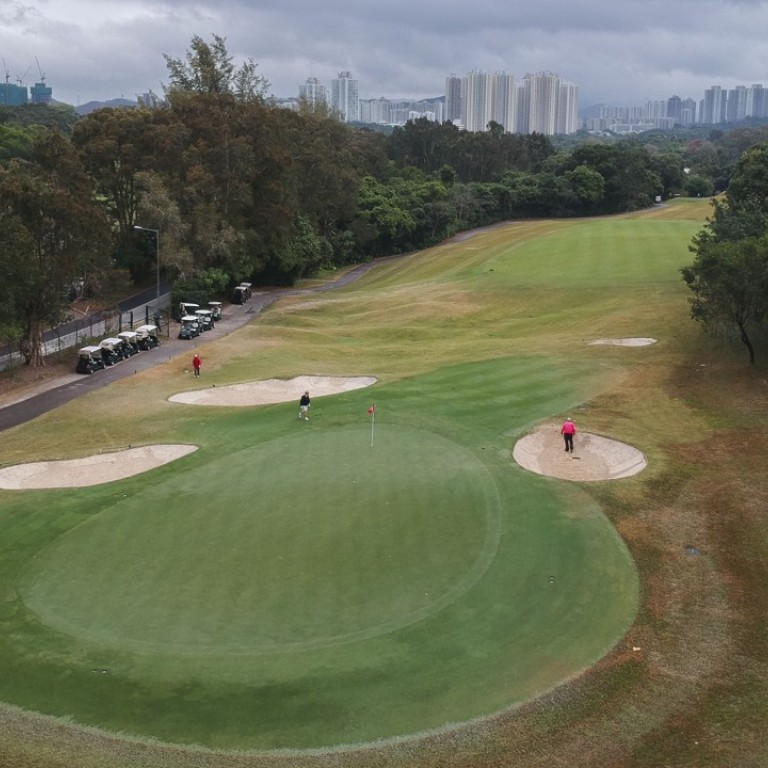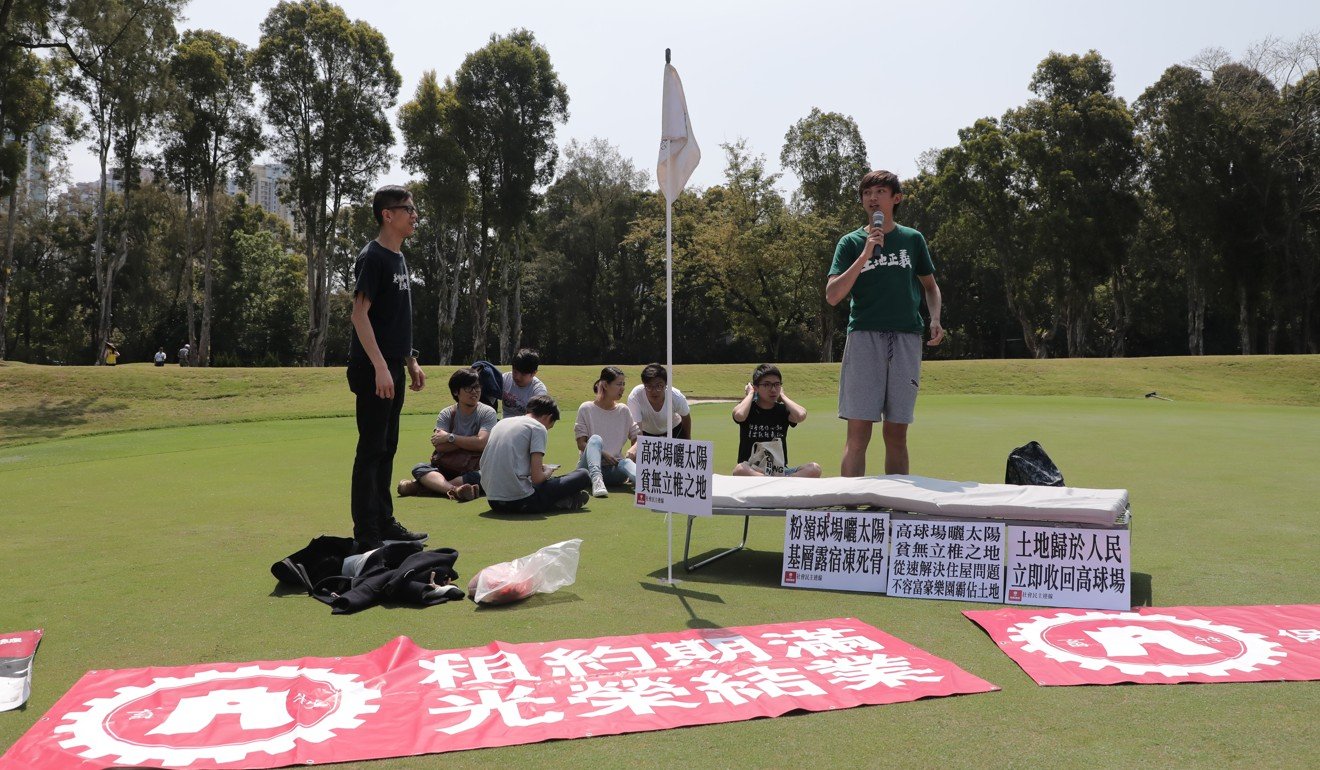
Hongkongers see homeownership as an investment. This has to stop
Regina Ip says Hong Kong must address the four factors of supply, demand, liquidity and expectations that are causing the lack of affordable housing in the city. The task force on land supply is moving in the right direction by exploring all possibilities
Activists storm elite Fanling golf course in land use protest

Moreover, demolition of the Fanling golf courses would risk destroying over 30,000 trees, hundreds of century-old graves of indigenous residents, historic buildings and a habitat for rare flora and fauna – the very same local treasures nativist groups have fought to preserve. Leaving aside the obvious contradictions and many deliberate factual distortions, the mounting furore over the golf land does serve as a powerful metaphor for the bitterness that has built up against the rich because of land shortages and the uneven distribution of land.
Demand has been stimulated by economic growth, and genuine demand for accommodation due to population increases and new households. In the peculiar situation of Hong Kong being mainland China’s top destination for outward investment, massive capital inflows in the past decade have created domestic asset bubbles, especially in housing. The apparently unstoppable rise in home prices has fuelled demand for homes as investment.
The government should refrain from encouraging homeownership when prices are already sky high
People have forgotten the dog days of property downturns from 1998 to the second quarter of 2003, when home prices plunged by 65 per cent. Homebuyers have been lulled by the continuous climb in prices into seeing nothing but upside. Many young people see our society as divided into the propertied class and the non-propertied class. They hate the rich for becoming wealthy by hoarding land and housing. And they hate the government for denying them a chance to get a decent home and become rich.
To resolve the current woes, the government needs not just a couple of measures to curb demand, but a comprehensive package to forcefully demonstrate its determination to get the housing market back on an even keel. The government needs to address all four factors – supply, demand, liquidity and expectations. The task force on land supply is moving in the right direction by exploring all possibilities.
Is liveability a luxury forever out of reach for ordinary Hongkongers?
To curb ever-soaring home prices, the government also needs to address expectations that the market could only go up. Its ambitious public housing programmes were launched in the 1970s with a view to meeting basic needs, not to encourage homeownership as investment. The government should return to the basics, and refrain from encouraging homeownership when prices are already sky high. Investment decisions should be left to individuals, weighing up rates of return and risk. If the government persists in encouraging homeownership in an increasingly risky market, it could end up facing calls for a bailout when the market crashes – and that has happened before.
Regina Ip Lau Suk-yee is a lawmaker and chairwoman of the New People’s Party. She is a member of the Hong Kong Golf Club

